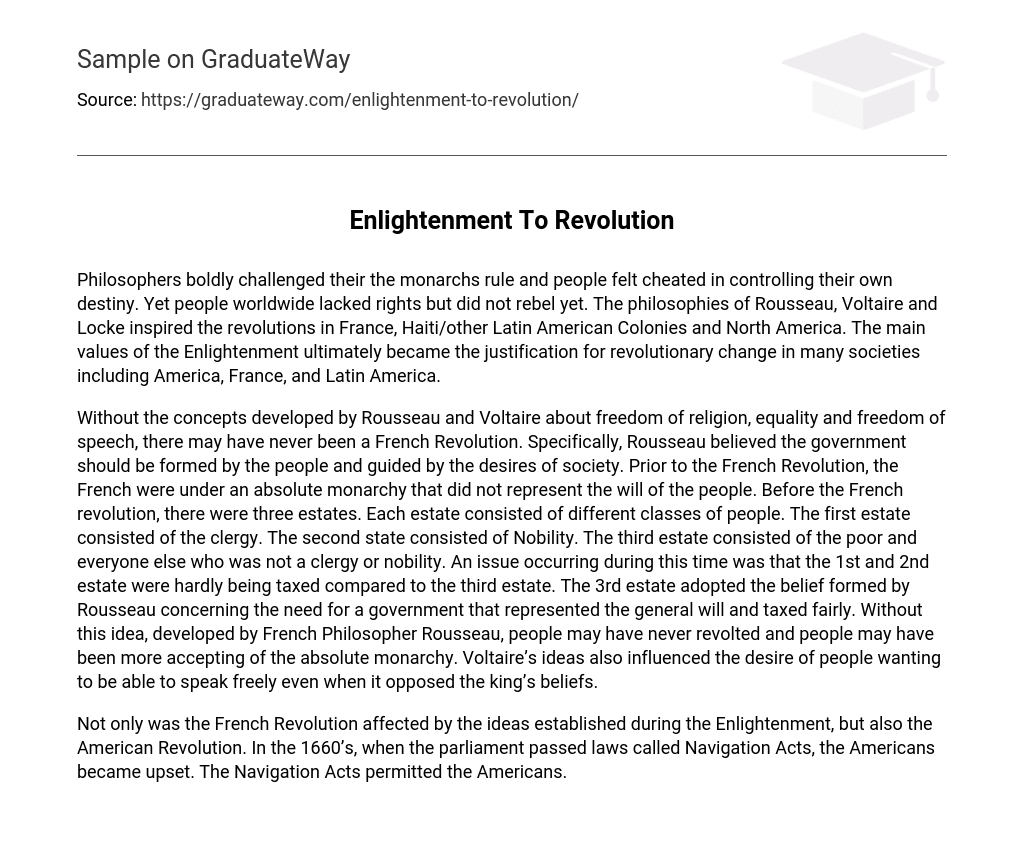Philosophers boldly challenged their the monarchs rule and people felt cheated in controlling their own destiny. Yet people worldwide lacked rights but did not rebel yet. The philosophies of Rousseau, Voltaire and Locke inspired the revolutions in France, Haiti/other Latin American Colonies and North America. The main values of the Enlightenment ultimately became the justification for revolutionary change in many societies including America, France, and Latin America.
Without the concepts developed by Rousseau and Voltaire about freedom of religion, equality and freedom of speech, there may have never been a French Revolution. Specifically, Rousseau believed the government should be formed by the people and guided by the desires of society. Prior to the French Revolution, the French were under an absolute monarchy that did not represent the will of the people. Before the French revolution, there were three estates. Each estate consisted of different classes of people. The first estate consisted of the clergy. The second state consisted of Nobility. The third estate consisted of the poor and everyone else who was not a clergy or nobility. An issue occurring during this time was that the 1st and 2nd estate were hardly being taxed compared to the third estate. The 3rd estate adopted the belief formed by Rousseau concerning the need for a government that represented the general will and taxed fairly. Without this idea, developed by French Philosopher Rousseau, people may have never revolted and people may have been more accepting of the absolute monarchy. Voltaire’s ideas also influenced the desire of people wanting to be able to speak freely even when it opposed the king’s beliefs.
Not only was the French Revolution affected by the ideas established during the Enlightenment, but also the American Revolution. In the 1660’s, when the parliament passed laws called Navigation Acts, the Americans became upset. The Navigation Acts permitted the Americans.





